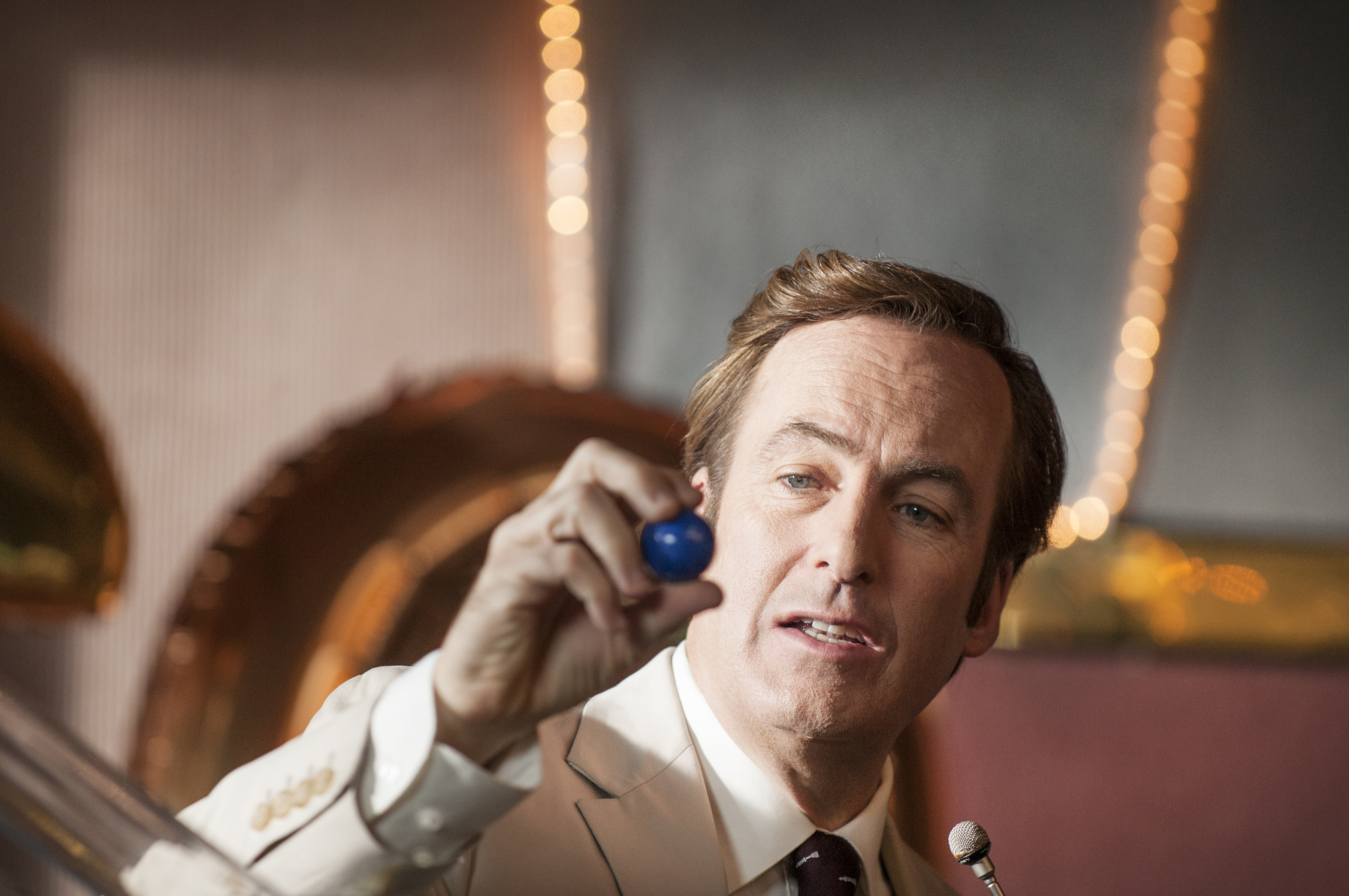The extraordinary moral arc of Better Call Saul
AMC's weird, compelling Breaking Bad prequel puts its protagonist on a different kind of moral journey


A free daily email with the biggest news stories of the day – and the best features from TheWeek.com
You are now subscribed
Your newsletter sign-up was successful
Better Call Saul is a weird show. It introduced characters like Nacho Varga (Michael Mando) without giving them anything substantial to do. It took a break in the middle of its 10-episode first season, which finished last night, to delve into the full background of Mike Ehrmantraut (Jonathan Banks) — a story Breaking Bad pointedly left untold. Protagonist Jimmy McGill (Bob Odenkirk) — the man who will be Saul Goodman — was pushed back into corruption during last night's "Marco," which hinged on the death of a character we barely got to know. These disparate elements will undoubtedly add up to some greater whole, but it's rare to see a freshman drama that requires so much patience and trust from its audience.
Of course, Better Call Saul isn't your average freshman drama. Given the virtually unlimited goodwill generated by Breaking Bad, it earned two seasons before it aired a single episode, allowing for the kind of slow-burn, multi-year development that new shows almost never receive. Is this a worthy use of all that Breaking Bad capital? I haven't fully decided yet, but it's certainly fascinating to watch.
As its first season ends, Better Call Saul is still tethered to Breaking Bad, though it shares just two major characters and zero overlapping story lines. If the two shows have any deeper connection, it's in the setting — not just geographically, but cosmically. Just as the universe around Walter White seemed to be working in concert with his warped psyche, Jimmy's breakdown in "Marco" seems to have been triggered by a greater-than-human force: a statistically improbable string of "B" balls in a Bingo game that forced his psyche to settle on words like "brother" and "betrayal."
The Week
Escape your echo chamber. Get the facts behind the news, plus analysis from multiple perspectives.

Sign up for The Week's Free Newsletters
From our morning news briefing to a weekly Good News Newsletter, get the best of The Week delivered directly to your inbox.
From our morning news briefing to a weekly Good News Newsletter, get the best of The Week delivered directly to your inbox.
If Better Call Saul offers any surprise, it's that Jimmy — as bottom-feeding and compromised as any lawyer in TV history during his Breaking Bad appearances — is the moral center of the story. This isn't a show about a good guy breaking bad; it's a show about a bad world breaking a good guy. Walter White's five-season Breaking Bad journey was an unstoppable downward spiral, but Better Call Saul has Jimmy on a kind of moral parabola: starting bad, spending 10 episodes trying to go clean, and finally accepting that the seedy life he wanted to leave behind was actually the place he most belonged.
He's in good company; almost without exception, Better Call Saul takes place in a fundamentally corrupt universe. Every single one of the schemes he used during his days as Chicago huckster "Slippin' Jimmy" relied on his mark being a total asshole — a high-powered businessman who greedily underpays for a "rare coin," or a drunk yahoo who gleefully steals the wallet and watch of a man who's "passed out" in an alley. In these situations, the subject of basic human decency never rises to the level of conversation; the only concern is how to grab a little more.
As Better Call Saul's season continued, and the show gave us glimpses of the top of Albuquerque's legal food chain, it became clear that something akin to Slippin' Jimmy's string of low-rent scams was being played out on every level of power. The Kettlemans exploited Craig's position as country treasurer to the tune of $1.6 million in embezzled cash. They got off relatively easy, but only because of the legal wheeling-and-dealing by Hamlin, Hamlin & McGill. It's a law firm that could use a man like Jimmy — charismatic, shrewd, dogged, and surprisingly devoted to doing the right thing. But despite his hardscrabble attempts to prove his worth, Jimmy learns that the game was actually rigged against him all along — and by his own brother, to whom he had always remained unfailingly loving and devoted. Can you blame him for vowing, at the end of "Marco," that he'll never be stopped again?
In the context of last night's finale, Better Call Saul's title takes on a new and prophetic meaning. Over the course of the season, we've seen Jimmy fall back on Chuck, Kim, Mike, and Marco for support. None of those people can help him now. If he's going to reach high success among Albuquerque's lowlifes — and we know, thanks to Breaking Bad, that he must — he'll need to dial into his own worst self as the second season begins.
A free daily email with the biggest news stories of the day – and the best features from TheWeek.com
Of course, we also know where that story ends. Better Call Saul made sure to remind us by opening with a black-and-white scene, set after the events of Breaking Bad. As the pilot began, Jimmy finished a dull shift at a Nebraska Cinnabon, went home, poured himself a stiff drink, and popped in a VHS tape full of his own memories:

This post-Breaking Bad coda represents Jimmy's final, unwilling attempt to go straight — and a dead end for a character who's already learned that all his real strengths lie at the other end of the moral spectrum.
Scott Meslow is the entertainment editor for TheWeek.com. He has written about film and television at publications including The Atlantic, POLITICO Magazine, and Vulture.
